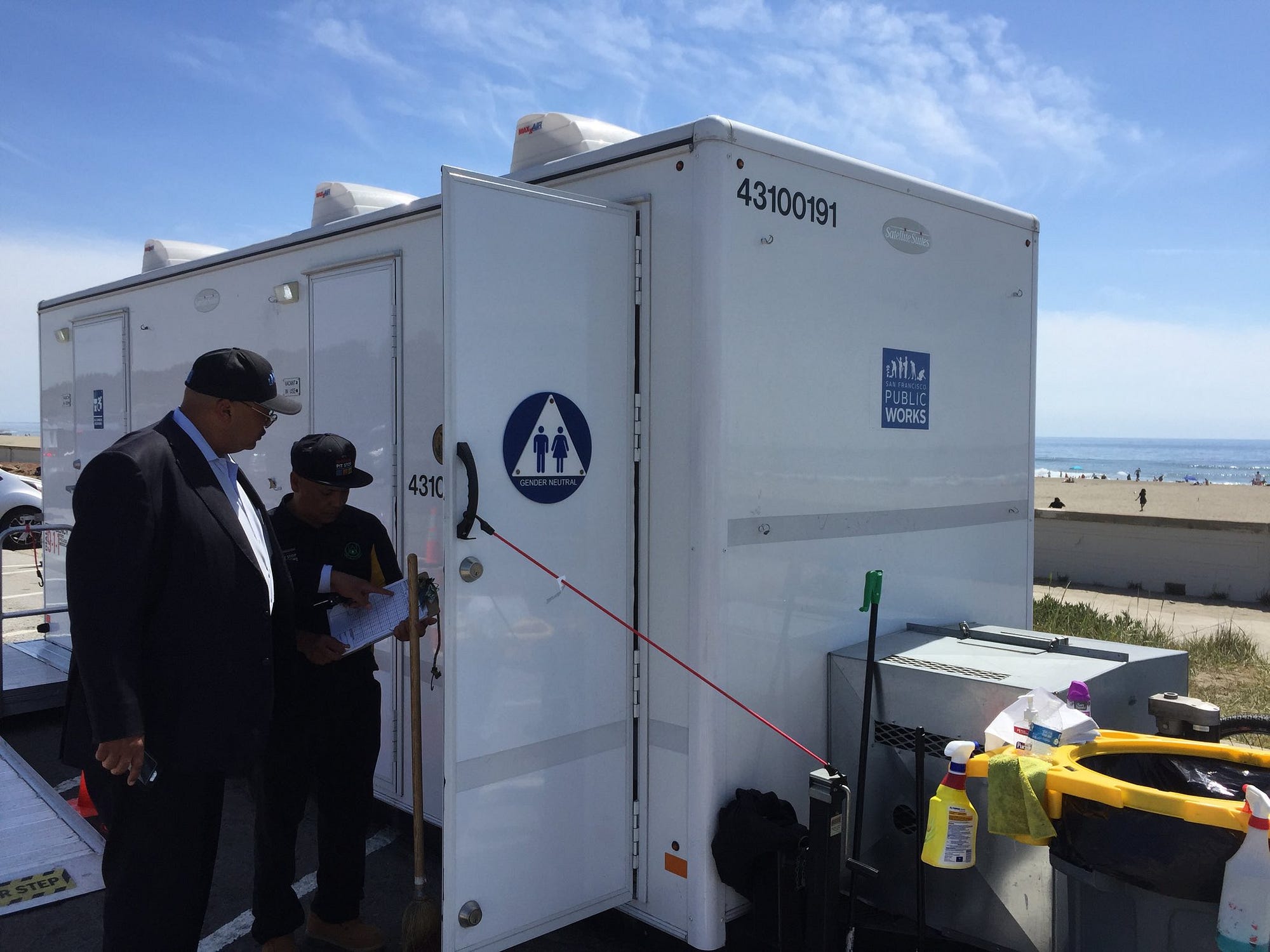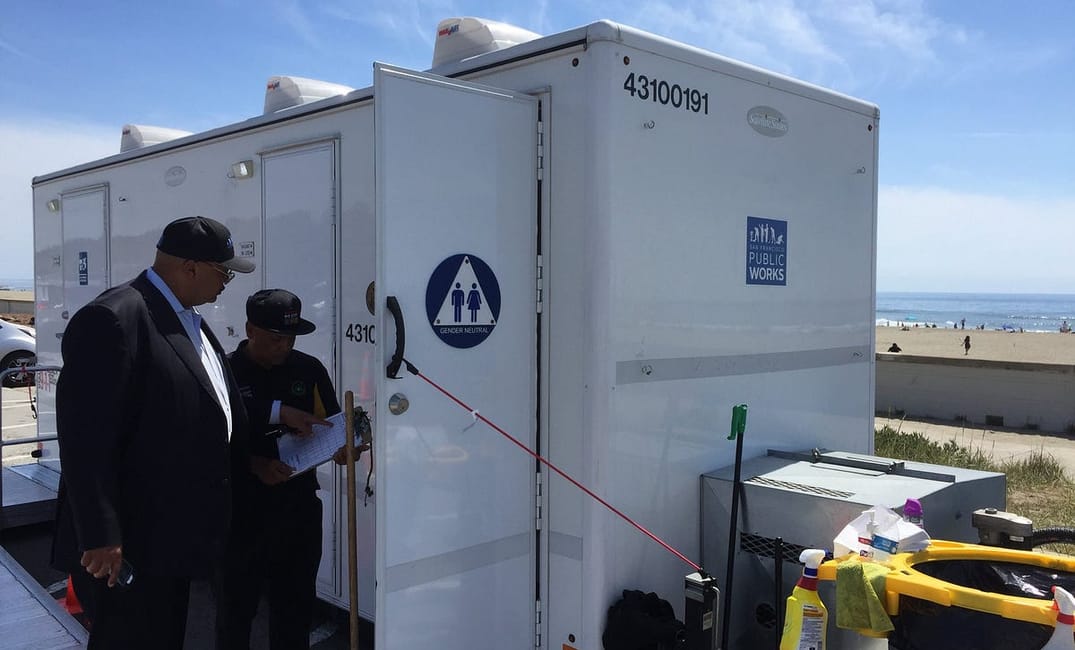
On Monday, the FBI arrested one of San Francisco’s highest-ranking public officials, Public Works Director Mohammed Nuru, for fraud. Known as “Mr. Clean,” Nuru has been tasked with cleaning up the city’s streets.
The 75-page criminal complaint outlining five alleged “schemes” masterminded by Nuru has rattled City Hall. Some of them include:
- A $5,000 bribe (ultimately unpaid) to a member of the San Francisco Airport Commission to help local restaurateur Nick Bovis (owner of Lefty O’Doul’s and the now-closed Gold Dust Lounge) win a bid for a restaurant lease at SFO airport.
- Acceptance of airfare, lodging, and a $2,070 bottle of wine from a Chinese developer in exchange for inside maneuvering of San Francisco’s building permit and inspection process.
- Discounts from San Francisco city contractors on labor, materials, and a John Deere tractor during the construction of Nuru’s vacation home in Colusa County.
As the FBI investigation continues, local news agencies like the San Francisco Chronicle and Marina Times are starting to resurface old articles alluding to Nuru’s less-than-perfect character over the years.
So who was Nuru, really? What was his legacy in San Francisco before it crescendoed in Monday’s FBI arrest?
One thing we can say about Nuru is that he was busy. He worked under four San Francisco mayors: Willie Brown, Gavin Newsom, Ed Lee, and London Breed. And over the course of 2018 and 2019, Nuru was allegedly busy with schemes to help himself and his friend take advantage of his power in government. Yet during that same time period, he spearheaded many noteworthy public works programs.
Like the allegations against him, many of Nuru’s public works projects over the past two years made headlines. Unlike the allegations against him, not all of Nuru’s public works projects over the past two years were (decidedly) bad. Let’s take a closer look.
Launching the San Francisco Poop Patrol
In the fall of 2018, Nuru and Mayor London Breed debuted their brainchild: the San Francisco Poop Patrol. Every day, this team of five Public Works employees uses a steam cleaner to remove feces from the streets and sidewalks of San Francisco’s Tenderloin neighborhood.
Nuru and Breed hoped the Poop Patrol would alleviate a public health hazard and quell the more than 25,000 reports of “human or animal” waste the city receives each year. The number of feces complaints continues to rise, but the Poop Patrol certainly adds to San Francisco’s growing arsenal of programs (and budget) dedicated to cleaning up city streets.
Piloting 24-hour public restrooms in the Tenderloin
Toilets, or lack thereof, are often cited as a contributing factor to San Francisco’s general griminess described above. The city boasts 25 self-cleaning public toilets and 25 Pit Stops, or portable bathrooms offering toilets, sinks, used needle receptacles, and attendants to staff them. Most of these public restrooms, however, close in the evening.
In August 2019, Nuru experimented with 24-hour service at three Pit Stops located in the Tenderloin and the Castro. Data collected during the three-month pilot revealed that 25% of all flushes occurred during the night. Requests for steam cleaning around the toilets also decreased. Given these promising results, Mayor Breed decided to extend 24-hour service at all three locations.
Side note: Public toilets were at the heart of one of the schemes described in Nuru’s criminal complaint. Nuru supposedly provided his friend Bovis with inside information on the city’s plan to purchase additional public toilets, giving Bovis an unfair advantage in the contract process.
Apologizing for the temporary closure of the Transbay Transit Center
Many San Francisco residents will recall the short-lived excitement surrounding the Transbay Transit Center’s grand opening in August 2018. Just six weeks after the bus depot began welcoming visitors, cracks were discovered in two of the steel beams. And so the $2.2 billion terminal closed for almost another year of repairs and reviews.
Nuru was the chair of the board of directors for the Transbay Joint Powers Authority, the agency managing this behemoth public works project. He therefore found himself in hot water when reports revealed that the center’s structural flaws were largely preventable.
Ahead of the transit center’s reopening in July 2019, Nuru apologized for the “inconvenience this temporary closure [had] caused.”
Side note: Nuru’s involvement with the Transbay Transit Center was also implicated in the FBI complaint. Similar to the restroom scheme, Nuru allegedly offered his connections and influence to help Bovis score a lease at the bus terminal.
Resisting high-tech trash cans
Tension over trash cans — what kind and how many — has certainly been a recurring theme throughout Nuru’s Public Works tenure. Bigbelly trash cans first appeared on city sidewalks in 2017.
They have since grown popular among San Francisco’s Community Benefit Districts (CBDs), community groups that partner with the city to levy funds for improving neighborhood cleanliness and safety. Thanks to their solar-powered compactors, the rectangular Bigbelly containers hold five times the load of San Francisco’s standard cylindrical bins. They also prevent people from rummaging through the trash, which often ends up on the sidewalk.
Former mayor Mark Farrell and current mayor London Breed both lent their support to these high-tech trash receptacles. Nuru, meanwhile, professed himself “not a fan.” In March 2019, Nuru led city officials in a decision to add sensors to its fleet of regular bins rather than fund the expansion of the Bigbelly program. At $3,000 a pop, the Bigbelly trash cans did not, according to Nuru, merit their cost.
Proposing tiny homes for San Francisco’s homeless
In August 2018, Nuru came up with an ingenious solution to San Francisco’s homelessness crisis: tiny homes. He boasted about the price tag of his 100-square-foot prototypes: Construction costs were estimated between $50,000 and $70,000 — much cheaper than the $750,000 needed to construct one unit of affordable housing in San Francisco.
Nuru further touted this “solution” for the city’s homeless population, saying, “If they’re willing to live in a tent, they should be willing to live in a nice cubicle, right?”
Nothing from this proposal has come to light yet, though city officials and homelessness advocates continue to explore portable homeless shelters.
Side note: The FBI complaint reveals that Nuru was charging ahead with the idea, yet again attempting to give his buddy Bovis ownership of the city contract to make his reimagined homeless shelters a reality.
Do these projects change your opinion of Mohammed Nuru? Given the severity of the charges against him, probably not. Nuru’s suspected nepotism and corruption fulfill — all too neatly — the stereotypes we often attach to politicians. They are not, however, representative of the many public servants working hard to improve San Francisco. Not the ones I’ve met, in any case.
Will Nuru’s FBI arrest erase your memories, or at least your consideration, of his past work? Personally, I plan to remember both, digesting the legacy of Mohammed Nuru as a cautionary tale while maintaining hope that some forward-thinking policies can emerge amid the muck.







